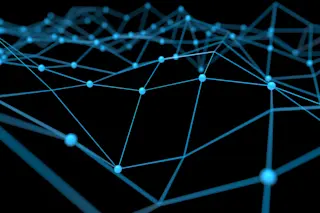Deep in the bowels of the Smithsonian National Museum of American History in Washington, D.C., sits a large metal cabinet the size of a walk-in wardrobe. The cabinet houses a remarkable computer — the front is covered in dials, switches and gauges, and inside, it is filled with potentiometers controlled by small electric motors. Behind one of the cabinet doors is a 20 by 20 array of light sensitive cells, a kind of artificial eye.
This is the Perceptron Mark I, a simplified electronic version of a biological neuron. It was designed by the American psychologist Frank Rosenblatt at Cornell University in the late 1950s who taught it to recognize simple shapes such as triangles.
Rosenblatt’s work is now widely recognized as the foundation of modern artificial intelligence but, at the time, it was controversial. Despite the original success, researchers were unable to build on it, not least because more ...














